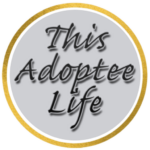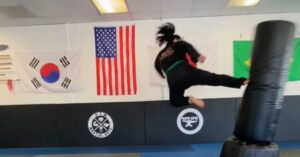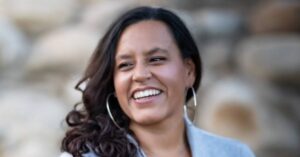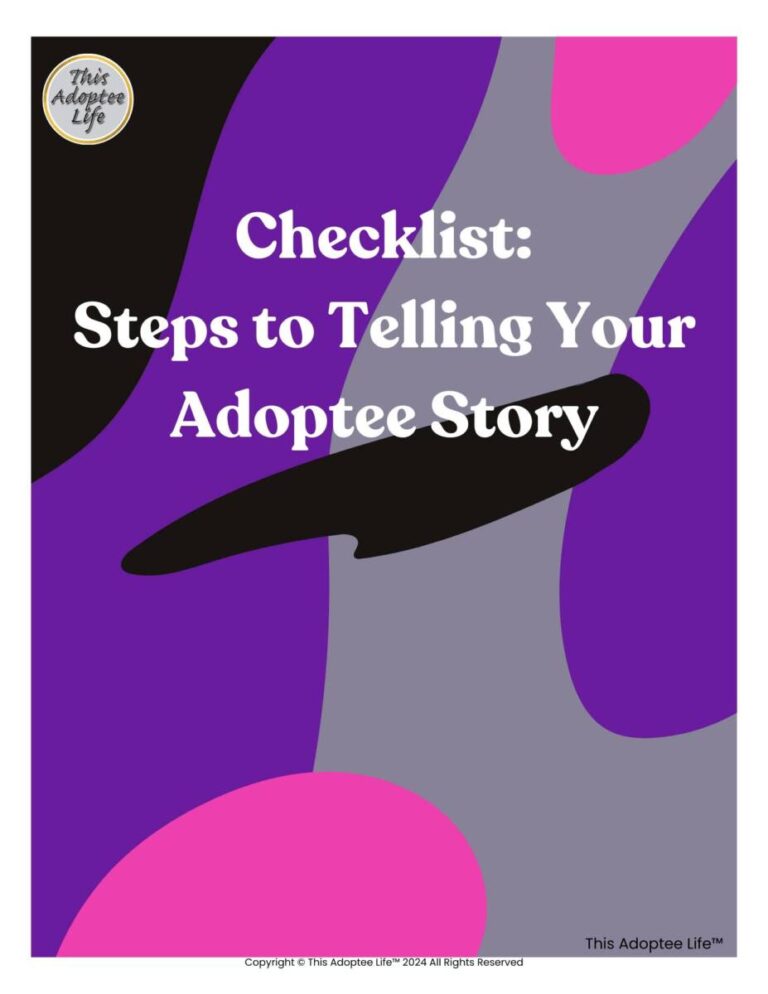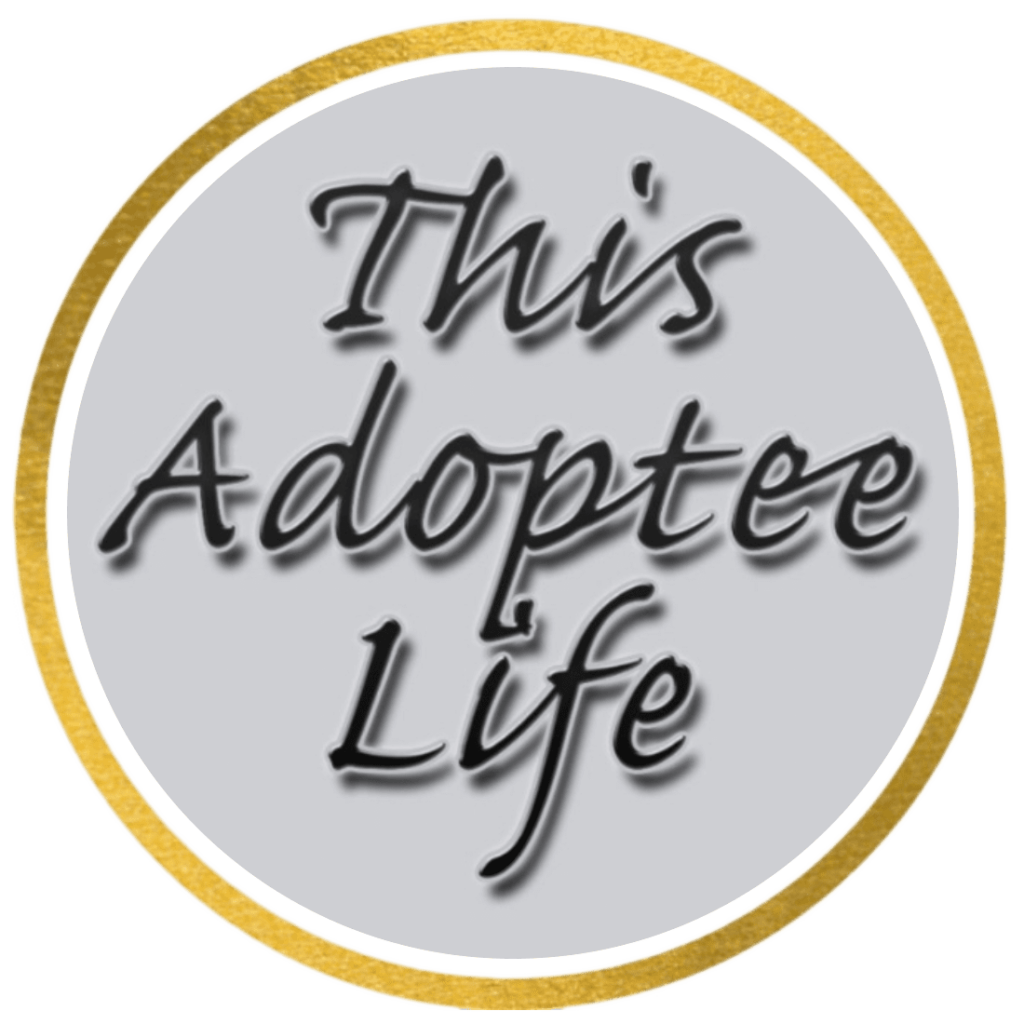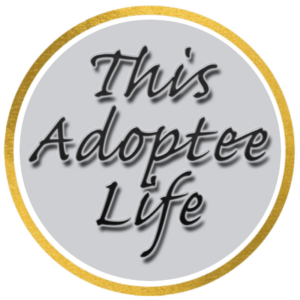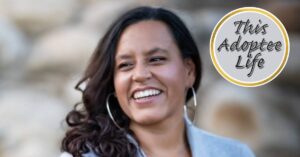
Adoptee Story: Lisa Astalos Chism
Fellow adoptee Lisa shares her story with us—a powerful journey through grief, identity, and healing as she navigates the complexities of adoption, reunion, and finding hope beyond the fog.
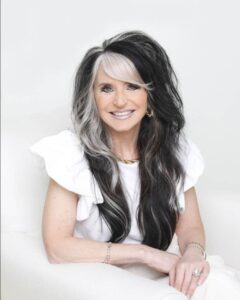
“Grateful and Perfect: An Adult Adoptee Finding Her Way Through the Fog”
The Pressure to Be Grateful and Perfect
My life began with the understanding that I was a “mistake.” My mom shared with me that I was adopted as early as I can remember. She also shared that my birth mom was “raped but she knew the guy,” followed by, “she loved you so much she gave you up so you could have a better life.”
This narrative stayed with me growing up, and I felt the immense pressure to be “grateful and perfect.” I was mindful that I was saved and therefore had to prove I was worthy of love. This notion continues to impact how I interact in relationships even today. I can say that in my 50s, I understand I was loved and am loved now. But the way I process this will forever be impacted by how I came to be in this world.
My adoptive parents were loving, and I truly believe they wanted me. It was a time when it was altruistic and acceptable to “pick a baby out” if you could not have children. They were so loving that they overcompensated to make sure I knew I was “chosen.”
Learning the Truth Behind the Narrative
I did not feel comfortable searching for my birth family until I was in my 30s and my mom had passed. Even then, I told myself (and my dad) that I was searching to find out my family medical history. Which was true. As a healthcare provider, I know how important family history is when determining screening for health concerns.
Initially, I found out ethnic information. Then one day, a message from the social worker at Catholic Social Services was left on my voicemail: “I have identifying information for you.”
I held my breath as I called the social worker back. As she told me, “Your birth aunt and grandmother consented to be found should you ever look,” I could not feel the ground. I was about to learn information I had been told all my life was “sealed.” I gasped and then asked, “What about my mother?” That was when I felt my world collapse. After wondering my whole life if she thought of me, why she gave me up, and whether she would want to know me now, I was told something that truly made me feel broken. Without any warning, the social worker casually said, “Your mom died years ago when she was 26.”
Now in my 50s, I understand why I felt so much grief. It was as if I was retraumatized. I also understand now that my birth mother’s grief may have led to her dying so young. My birth mother was not supported. Instead, she was sent away to a home for “unwed mothers.” Her shame became my shame growing up. I was not only possibly a result of an act of violence, I was a mistake to be sent away for and taken care of. She was not allowed to keep me. I was, in essence, a “baby scoop” baby.
I do believe she loved me. My birth aunts, who are beautiful people, shared with me how traumatic this time was in my birth mother’s life. They shared poems she wrote about me while she was pregnant. Those poems gave me a glimpse into what it must have been like for her—alone, scared, and without options. Yet, the love she felt, as she hoped I would find her one day, shone through.
The Fog Deepens Before It Lifts
Coming “out of the fog” as an adult adoptee has been something I have experienced in stages in my life. Learning what it was like for my birth mother in my 30s was likely too much to process after being conditioned to believe that “she loved me so much she wanted me to have a better life.” I still had questions and felt the deep sense of abandonment.
Then the unexpected happened: my birth father found me in my 50s.
AncestryDNA led to me learning the secret that died with my birth mother—who my birth father was. There he was on the page: a picture and a name. Seeing that appear before me was unexpected, terrifying, and exhilarating all at the same time. It was eight months before he reached out. And my life was never the same.
He denied raping my birth mother. But in truth, I am not certain he remembered who she was. He said he had “always wanted a daughter.” It seemed like a fairytale. But with every fairytale, there is a hero and a villain.
I learned the hard way that my birth father was an alcoholic. And from the beginning, his wife was not at all happy about my presence in their lives. Initially, the love bombing from my birth father was intense and I was vulnerable. His attention was intoxicating. But with his consuming attention came a wife who did not approve of me and certainly did not want me in his life. What was initially her rejection transformed into his rejection, and within four years, he was out of my life. I was on the losing side of an ultimatum.
I began therapy and a journey of self-discovery I did not necessarily ask for. The years he was in my life were some of the most painful I have ever experienced. In the midst of yearning for his love, I allowed him to shift the narrative of my birth mother “loving me so much she gave me up” to “she abandoned you.” I was confused and vulnerable. I wanted to please him so desperately, I allowed myself to let this sink in. That was another layer of the fog lifting. What if she had just abandoned me? She did “give me up.” Should I be angry with her?
Once he was out of my life, I could finally see life outside of the web he had tangled me in. And now, as the fog continues to clear, I have even more compassion for my birth mother. I also understand that his background involved abuse and he used alcohol to cope with his own trauma.
From Pain to Purpose
I also remain appreciative of my parents, who have both passed. They loved me and gave me a beautiful home. I believe that if they understood the trauma adoptees feel, they would have wanted to be a part of the solution.
I have since written my story and chose the title of my memoir “The Adopted Nurse” because I truly cannot separate the two. As a nurse practitioner, I understand the importance of knowing your family history. Every day in my practice, I ask women that I am taking care of, “Is there any family history of breast cancer?” Often enough, they answer with concern laced across their face, “I don’t know, I’m adopted.” When this happens, I sit stunned for a minute. It’s as if we are sisters and part of the same club—the “I don’t know about my family history, I am adopted” club.
There are many other ways my personal lens of being an adoptee shapes how I care for women. For example, when I deliver this difficult news, I do so with care. The way the social worker so casually told me about my birth mother dying at 26 years old with no warning left an everlasting impression on me. It also solidified my commitment to deliver life-altering news in the most sensitive way I can.
I frequently counsel my patients about having genetic testing done to assess for a genetic mutation that increases their risk of breast cancer. I will often say, “I understand if you do not want to know. Once you know, you cannot unknow.” I relate this to learning my birth father’s identity. I had no idea I would be faced with knowing this information after “spitting in a tube” for AncestryDNA. And I could never again not know.
I understand as a nurse, a woman, and an adoptee that for me to heal, I have to find compassion. Compassion for myself, my birth mom, and even my birth father. His life had been wrought with trauma growing up that likely impacted how he viewed the world and coped with his pain. It is through courage and compassion that I have found hope. Hope that I will continue to heal. Hope that the love and compassion I spread to others will help them heal as well.
Parts of this blog have been adapted from my memoir “The Adopted Nurse: A Memoir of Courage, Compassion, and Hope.”
AUTHOR BIO: Lisa Astalos Chism (DNP, APRN, BC, MSCP, CSC, CBCN, FAANP, FAAN) specializes in breast, menopause, and sexual health. A fellow of the American Association of Nurse Practitioners (2011) and the American Academy of Nursing (2021), she received the Compassionate Caregiver of the Year Award (2013), Certified Menopause Practitioner of the Year (2011), and a Distinguished Alumni Nightingale Award (2013). Dr. Chism is a two-time AJN Book of the Year (2013, 2019) recipient for her textbook, The Doctor of Nursing Practice Degree: A Guidebook for Role Development and Professional Issues. Dr. Chism is also an adoptee and recently published her memoir “The Adopted Nurse: A Memoir of Courage, Compassion, and Hope”. She divides her time between where she practices in the metro Detroit area and her farm in Hillsdale, Michigan. She lives with her husband Bruce and daughter Izzy.
You can find and connect with Lisa on Instagram @drmommypoppins
@theadoptednurse
Amanda Medina
About Us
This Adoptee Life is a place where adoptees can explore their story, share their experience, and express what they’ve lived through—supported by a community that understands.

